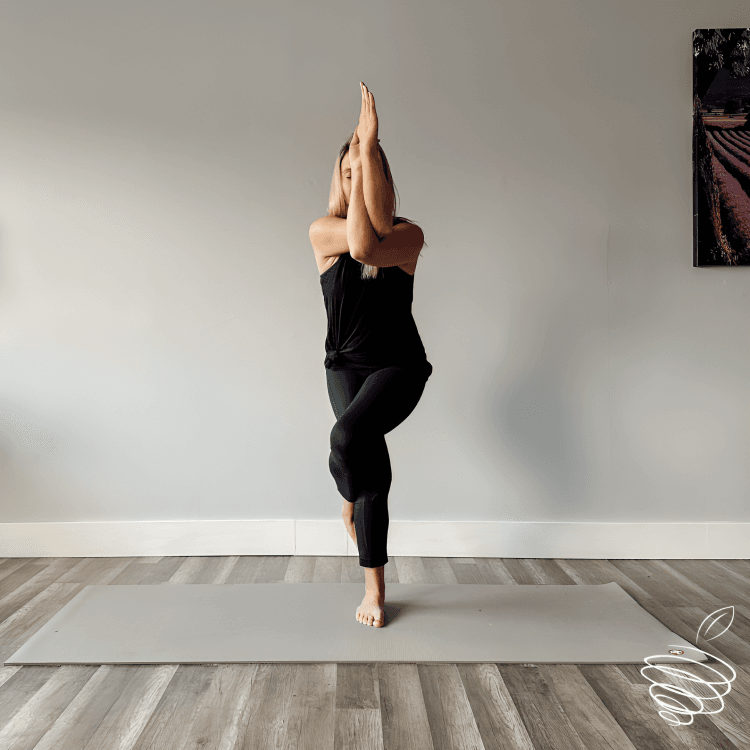
“
Powerful yoga benefits for mind and body go far beyond just stretching on a mat. Yoga is a life-enhancing practice that heals you from the inside out—boosting your physical strength, sharpening mental clarity, and restoring emotional balance. Whether you're dealing with stress, low energy, or chronic pain, yoga offers natural solutions rooted in ancient wisdom and proven by modern science. 1
1
”
Ancient Indian physician Patanjali compiled the Yoga Sutras, describing yoga as a method to control the mind and eliminate suffering—linking physical posture and thought control to total well-being. 1
Yoga improves flexibility by gradually loosening tight muscles, which reduces joint pain and improves posture. This physical ease helps prevent injuries and supports a more active lifestyle. 2

Regular yoga postures like Downward Dog and Warrior Pose build muscle tone and endurance. These poses activate deep muscle groups, which improve body stability and overall physical strength.
Yoga strengthens the immune system by stimulating lymphatic flow and reducing inflammation. A healthy immune system is key to fighting infections and recovering from illness more naturally. 3
Breathing techniques used in yoga, such as pranayama, enhance lung capacity and respiratory function. Controlled breathing increases oxygen intake and promotes calmness during anxiety. 4
Yoga has been shown to improve sleep quality by relaxing the body and calming the mind. As a result, those who practice it regularly report deeper, more restful sleep patterns and reduced insomnia. 5
Practicing yoga enhances concentration and focus by training the brain to remain present. Mindful breathing and postures increase awareness, helping improve memory and mental clarity. 6
Yoga encourages better posture by strengthening spinal muscles and improving balance. Good posture reduces back and neck pain, which is often caused by sitting or standing improperly. 7
Yoga teaches emotional regulation by combining movement and stillness, which helps individuals manage mood swings and depression. This internal balance can lead to more peaceful social interactions. 8

Many yoga poses support cardiovascular health by improving blood circulation, lowering heart rate, and reducing blood pressure. Over time, this can decrease the risk of heart disease and stroke.
Yoga can relieve chronic pain conditions like arthritis, back pain, and fibromyalgia. It gently strengthens muscles and reduces tension, providing natural relief without relying solely on medication. 9
Practicing yoga in groups fosters social bonding, reducing feelings of loneliness. These community classes provide emotional support, especially for individuals dealing with grief or mental health issues. 10
The mindfulness taught in yoga helps reduce addictive behaviors by promoting self-awareness and impulse control. It becomes easier to make healthy decisions when the mind is focused. 11
Renowned psychiatrist Carl Jung embraced yoga in psychotherapy, valuing its role in self-reflection and transformation. He saw it as a way to balance the conscious and unconscious mind for greater clarity. 12
Yoga supports hormonal balance by reducing cortisol and improving glandular health. Women, in particular, may benefit from reduced symptoms related to PMS, menopause, or thyroid-related conditions. 13

Balance poses like Tree Pose or Eagle Pose enhance stability and coordination. This not only prevents falls in older adults but also improves athletic performance in sports and physical activity.
Children who practice yoga show improved academic performance, emotional intelligence, and concentration. It equips them with stress management tools and builds body awareness. 14
Yoga improves spinal alignment and reduces tension in the neck, shoulders, and lower back. A flexible spine and strong core help prevent posture-related pain caused by daily screen use and sedentary work. 15
Meditation in yoga trains the brain to quiet unnecessary thoughts and internal chatter. This leads to reduced anxiety, enhanced problem-solving, and more rational thinking in emotionally difficult situations. 16
Practicing yoga outdoors increases vitamin D absorption while connecting the mind with nature. The combination of fresh air and mindful movement enhances mood and boosts emotional well-being. 17


